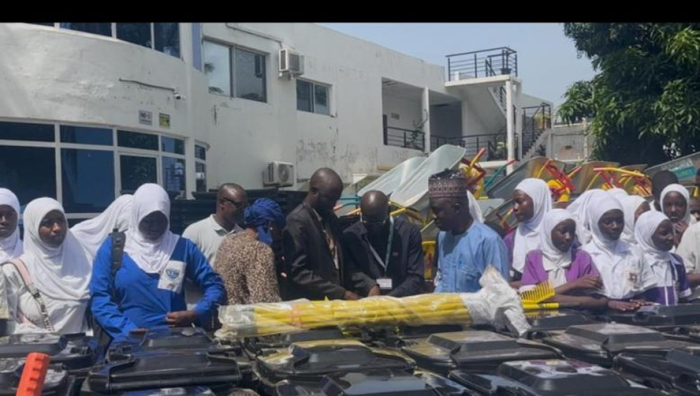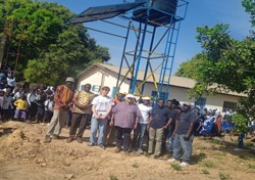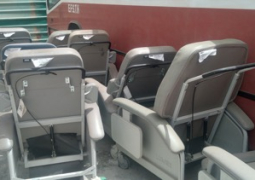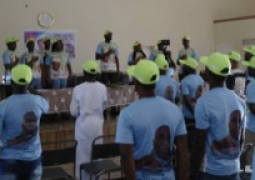
The presentation, held at the National Environment Agency headquarters in Kanifing, was organised in collaboration with the West Africa Coastal Areas (WACA) Resilience Investment Project. Funded by the World Bank, the project focuses on restoring and protecting the Kotu Stream and its surrounding communities from flooding and pollution.
In his opening remarks, Sheikh Alkinky Sanyang, Senior Program Officer at the NEA EE&C Unit, said the initiative seeks to nurture a generation of environmentally conscious citizens through practical, school-based activities.
“The Catch Them Young strategy is about building responsibility early,” Sanyang said. “We want our schools to be clean, green, and models of environmental care.” He announced that each participating school would receive five trash bins, five wheelbarrows, and five rakes to support daily cleaning and greening activities.
Representing the Ministry of Basic and Secondary Education (MoBSE), Deputy Permanent Secretary Adama Jim Jobe hailed the partnership as a timely and practical step that complements the ministry’s environmental education efforts. “Waste management remains a serious challenge in many schools. This support will go a long way in improving hygiene and shaping positive attitudes among students,” she said.
Also speaking, Senior Education Officer Antouman Nying, who represented the Director of Region One Education, described the gesture as a major boost to the ministry’s ongoing efforts to integrate environmental learning into school life. “Environment is everyone’s business,” Nying said. “These tools will help schools manage waste better and reinforce what teachers are already doing in classrooms to promote environmental awareness.”
Lamin Camara, Director of Intersectional Services at the NEA, emphasised the importance of collective responsibility in addressing environmental challenges.
“The flooding around the Kotu Stream is largely caused by human activity,” Camara noted. “With these materials, we are encouraging schools to manage waste properly and protect their surroundings.”
The WACA Project supports The Gambia’s broader efforts to strengthen resilience against flooding and coastal degradation while promoting sustainable urban development.
The event concluded with NEA’s commitment to distribute the labeled materials to all 24 schools next week, marking the start of a new phase in the Catch Them Young initiative.





